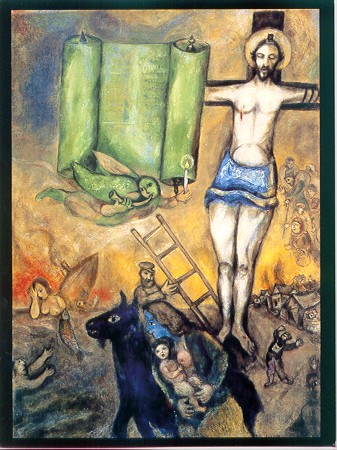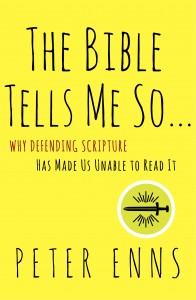Background:
James McGrath wrote that he’s happy that the Massacre of the Innocents by Herod didn’t happen.
James replied that I’m wronger because I’m thinking theologically while he’s thinking historically. (His post also showed that he’s pretty damn funny.) Here’s the money quote from his response:
Ironically, because Tony has justifiable concerns that the text not be misused for theological ends, Tony ends up ignoring the crucial historical question, which has to be paramount when we ask what did or did not occur. We do not say that the Holocaust occurred because otherwise it would let God off the hook. We say that it occurred because the evidence is clear and undeniable, and includes people who lived through it. And if we ask whether Israelites invaded Canaan and slaughtered Canaanites, the answer to that question must be based on the historical evidence, not because it either does or does not let God or Israelites off the hook.
Commenters, it seems, are evenly split, with the nod going to James. So, not being one to stay on the mat for too long, I’m going to give this one more try.
I defer to Walter Bruegemann, the dean of Old Testament scholars. When I was interviewing him at an Emergent Theological Conversation years ago, he said something that I’ve hung on to ever since:
“You can’t get behind the text.”
What he meant by that was that the text is all we’ve got, and when we try to get behind the text to “what really happened,” we are disempowering the text, robbing it of its ability to provoke, offend, and comfort. “Were Adam and Eve real, historical persons?” Wrong question!, Bruegemann shouts.
When I read James so easily brushing off the infanticide recorded in Matthew’s Gospel, I heard yet another example of what the Jesus Seminar attempted to do a couple decades ago, what the Dartmouth Bible did before that, and what Thomas Jefferson did before that: redact the Bible in order to align it with modern sensibilities.
Like many seminarians, I had to push through my doubting, critical phase when I learned that there is no archaeological evidence that 100,000 people lived in the Sinai Desert for 40 years (they would have left trash, right?), or that the infancy narratives of Matthew and Luke do not accord in every detail. I had to get to a second naivete, as so many others do — and, honestly, many others do not.
Count me a fan of history. I’ve read and studied a lot of it, and I continue to. But history has its limits.
James admitted in his original post that he doesn’t want God to be a monster. Neither do I, but that’s not really my choice. James insulted Matthew as a theologian and a historian. That seems to me supremely arrogant. It is what I’d call chronocentric.
I am not trying to protect the text. I think it can handle everything that we can throw at it. But neither do I see any need to protect God from the terrifying












